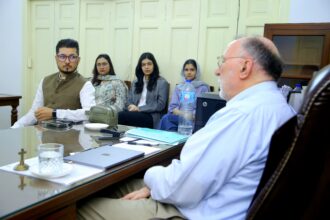For decades, women were not allowed to utter the word “divorce” out loud; getting one was a rather far-fetched idea. In the recent years, however, the women of South Asia have decided to shift paradigms.
As the world evolved from horse carts to Apple Teleport, the society evolved alongside, and a collective brain rewire came into occurrence. Openly discussing taboos such as marital issues is a huge upgrade in itself, though whether it is for the better or for the worse remains an unresolved debate.
While many argue that the divorce surge in the region is a societal issue, blaming the rise of feminism (alongside several other factors) for it, many still believe that we have, after all, broken the centuries-old constraints and have liberated ourselves from the shackles of ‘compromise,’ bearing in mind that that term, in this context, entails slaving our lives away in the name of saving the family system. It must, however, be admitted that the moral dilemma at hand extends far beyond drawing room discussion.
With the rise of technology and the ever-increasing importance of human rights, women have put an end to their misery. “Enough,” they say. The women of this day and age are more aware of their rights than at any other point in history, as they’re finally gaining the ability to navigate the world without a man by their side. This shift has largely been driven by the normalization of education for women, which has resulted in the possibility of financial independence for them. With this, the question arises: how did we, as a society, reach such a l point of intolerance that a sliver of awareness makes coexistence increasingly difficult?
The role that the fast pace of change has played in this area cannot be ignored. The family system has been deeply affected by the lack of free time in our lives. This situation can largely be blamed on late-stage capitalism, as everyone, from teenagers to senior citizens, seems to be caught up in earning money to make ends meet. This never-ending race against time, coupled with the rising inflation, has forced people to sacrifice their time with the family in order to contribute to it financially. Ironically, though, the pursuit of a comfortable lifestyle has forced us into forgetting the beauty of human relationships, especially that of marriage. As a result, we have lost the comfort and peace that spending time with our loved ones once offered.

Another factor that cannot be overlooked, and which our elders rightly criticize, is the prevalence of the relationship culture among our youth. The dating culture’s drawbacks include cheating, as many young people find themselves jumping from one person to another, struggling with commitment, and failing to appreciate the value of having one single person by their side through good times and bad. It would not be wrong to say that in this age of hyper-independence and growing frustration, individuals have lost tolerance for one another.
Last but not least, our dear old friend Covid-19 also played a possible role in the divorce surge throughout the world in general, but in the South Asian region in particular. This impact varied from household to household, as we must not forget that the most amount of children were also born in the following years. The prolonged lockdowns and curfews led people to either lose their jobs or switch to “work from home,” all of which led to increased friction and exposed pre-existing marital issues. The financial issues during this period added fuel to the fire. Many couples who relied on external distractions were now bound to stay at home and face their differences, and let’s just say, some of those confrontations did not age well at all.
It was also reported that during the pandemic, cases of domestic violence increased, which made divorce a necessary escape for many women. Moreover, the psychological toll of the pandemic caused increased irritability or detachment in many relationships; many partners discovered deeper incompatibility when faced with shared stress.
Although normalizing divorce may seem like an improvement for us, it is not something to celebrate. A better approach would be to reflect on our current societal stance, where tolerating each other has become increasingly difficult. Divorce not only disrupts the family unit but also inflicts lasting trauma on individuals; this pain can be so profound that no amount of healing or therapy can fully resolve it. Additionally, it leaves hidden scars on children, which they may not even recognize as part of their experience. It is crucial for us to start with ourselves, striving to become individuals who are enriching to be with, rather than those from whom others seek an escape.












